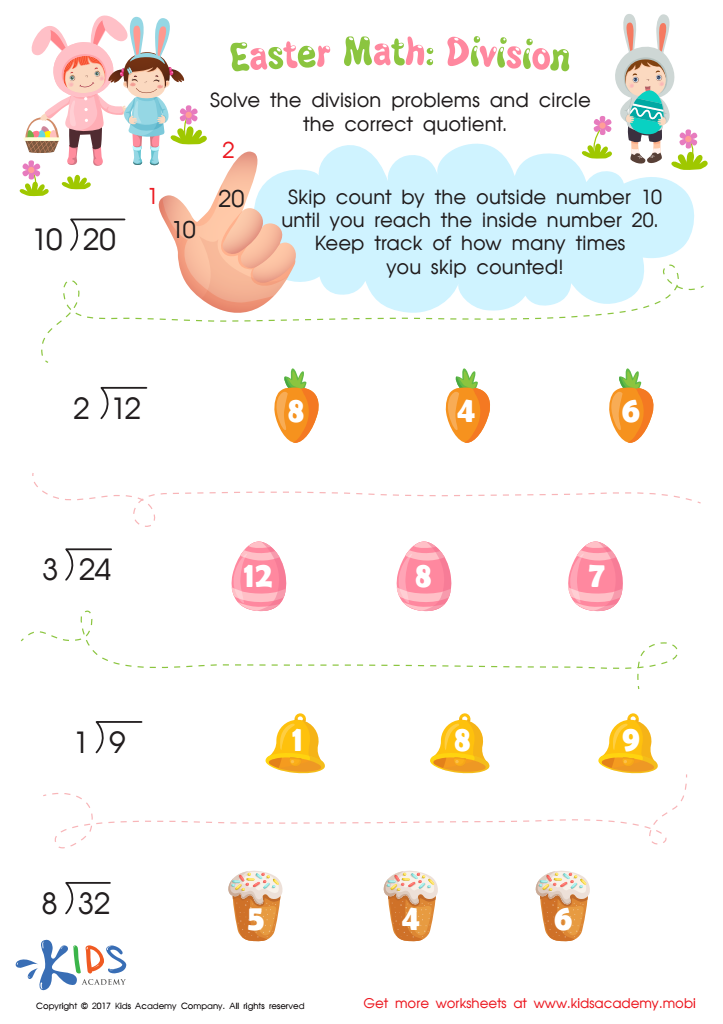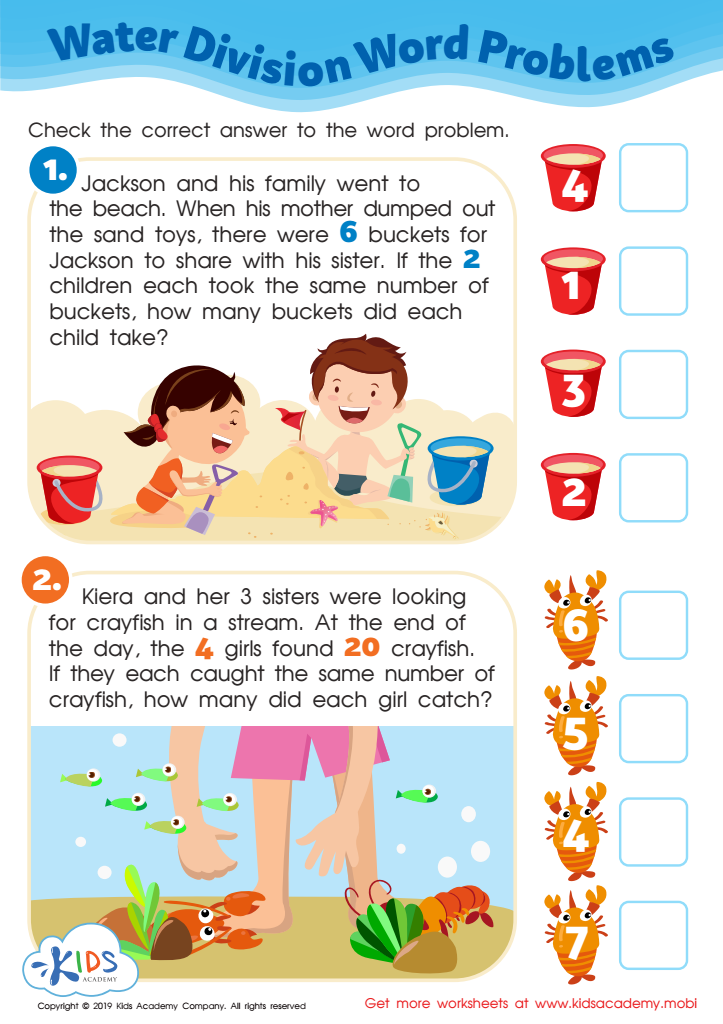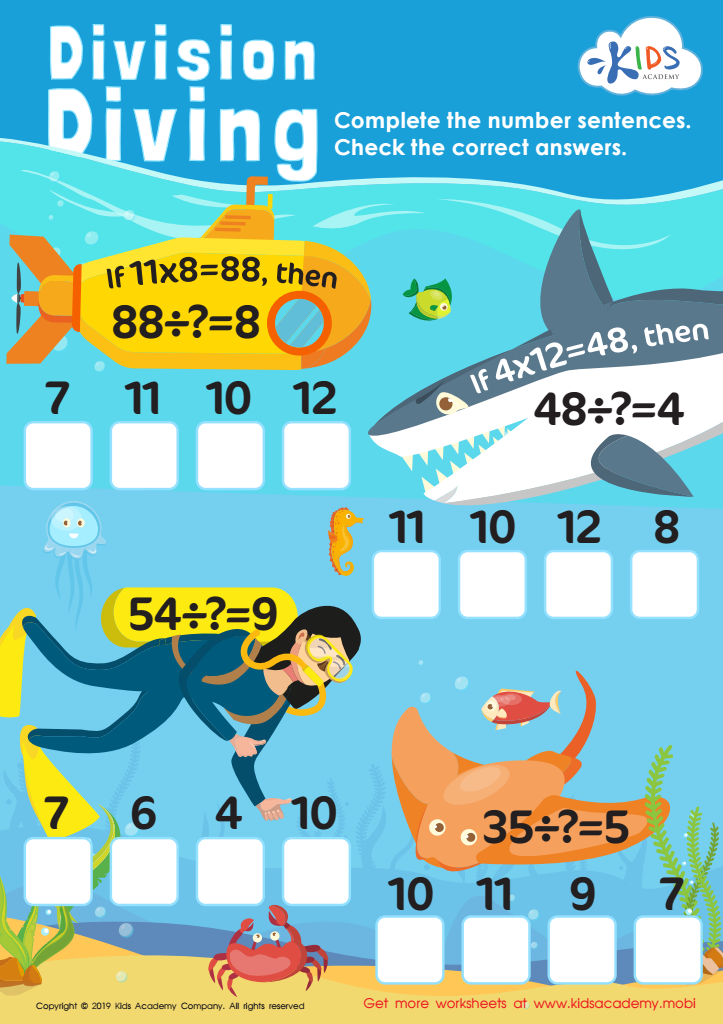Mathematical reasoning Normal Division Worksheets for Ages 5-9
3 filtered results
-
From - To
Explore our engaging Mathematical Reasoning Normal Division Worksheets designed specifically for children aged 5-9. Our worksheets provide a fun and interactive approach to division concepts, helping young learners build essential skills in mathematical reasoning. Each worksheet features age-appropriate exercises that encourage problem-solving and critical thinking, fostering a deep understanding of division through visual aids and practical examples. Perfect for classroom use or at-home practice, these resources aim to enhance confidence and proficiency in mathematics. Download now to support your child's learning journey and watch them thrive as they conquer division with ease and enthusiasm!


Division Worksheet


Water Division Word Problems Worksheet


Division Diving Worksheet
Mathematical reasoning is a crucial aspect of cognitive development for children aged 5-9, particularly in mastering normal division. At this stage, children are developing their understanding of basic mathematical concepts, and fostering a solid foundation in division promotes problem-solving skills and logical thinking.
Normal division connects to real-life situations; it teaches children how to distribute items fairly and understand shared quantities, which lays the groundwork for cooperative interactions. Additionally, comprehension of division underpins later mathematical learning, notably fractions and more complex arithmetic, making early mastery essential.
Encouraging reasoning allows students to explore different methods employed in division. This not only strengthens their number sense but also empowers children to articulate their thought processes. By emphasizing reasoning in mathematical discussions, parents and teachers develop critical thinking skills, enabling students to tackle unfamiliar problems with confidence.
Moreover, cultivating a positive attitude toward mathematics early on helps reduce anxiety related to the subject. With early exposure to Division's reasoning, children learn to view math as a collaborative and engaging endeavor, fostering a lifelong love for learning. Parents and teachers play a pivotal role in this development, facilitating environments where inquiry and exploration are encouraged.
 Assign to My Students
Assign to My Students















